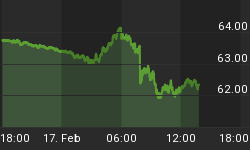America’s big banks make more than $11 billion worth of overdraft and related fees every year, and 2020 could break even more records due to the uncertainty caused by the pandemic. They’re counting on customers being disorganized, strapped for cash--or both.
But now, those practices are coming under intensified scrutiny.
The Center for Responsible Lending (CRL) recently released a report concluding that the biggest banks, “engage in a number of abusive practices that combine to drain massive sums from their customers’ checking accounts”.
The bulk of those fees, according to CRL, are “shouldered by banks’ most vulnerable customers, often driving them out of the banking system altogether”.
Last year, the report found that JPMorgan Chase pocketed $2.1 billion in income from overdraft and insufficient funds fees, followed by Wells Fargo and Bank of America (BAC) with $1.7 billion and $1.6 billion, respectively. According to CRL, TD Bank’s overdraft fees represent about one-third of its non-interest income.
The banks typically charge overdraft fees when the customer overdraws on their checking account. Rather than allowing a debit card to be declined or a check to bounce, the bank will cover the difference and charge an overdraft fee, usually about $30 to $35.
Back in March, Senators Cory Booker and Sherrod Brown introduced a bill called the “Stop Overdraft Profiteering Act”, which would bar banks and other financial institutions from charging overdraft fees during the pandemic.
The bill, however, has not made it into a stimulus package or even into the Senate for a vote.
“Millions of hardworking Americans have been thrown into financial insecurity because of this unprecedented global pandemic. For these individuals, and those vulnerable before the outbreak, one $35 overdraft charge can lead to financial free fall,” Booker said in a statement.
CRL’s report found that as of mid-May, none of the 10 largest banks had offered any sustained relief from overdraft fees during the crisis. On the contrary, in August TD Bank agreed to pay $122 million to settle claims related to overdraft abuse.
Now, the issue has become part of the presidential election campaign.
As part of his tax plan if elected, former Vice President and Democratic presidential nominee Joe Biden is signalling such abuse may come under even more scrutiny.
Even though Biden’s plan has not explicitly promised to take action on overdraft fees, CNN reported that he might.
According to his tax plan, which is basically just unwinding Trump's 2017 corporate tax cuts, the top 10 banks would see a $7 billion increase in corporate taxes each year.
But to make any of this a reality, Biden wouldn’t just have to win the presidential election: The Democrats would need to take the Senate and maintain their hold on the House.
In the end, perhaps the best chance of stopping the abuse practices of America’s biggest banks is simple competition.
In recent years, a number of fintech start-ups have emerged to challenge the status quo of banking. Some of them are offering standard checking accounts with no overdraft fees.
By Josh Owens for Safehaven.com
More Top Reads From Safehaven.com:

















